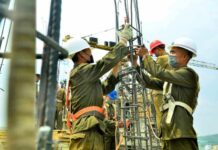North Korea is likely to have a very poor corn harvest this year so a serious food crisis is looming, according to an expert who has observed the state of the fields in the region surrounding Pyongyang.
The Director of the International Corn Foundation and a Professor at Kyungpook National University in South Korea, Kim Sun Kwon recently visited North Korea for the 51st time. Upon returning to China this week, he told Daily NK in a phone interview, “This year’s crop is the worst I have seen in 12 years of visiting North Korea.”
Kim went on, “I predict that this year’s corn harvest will be reduced by a whopping 1 million tons out of an average of 2.5 million tons due to a lack of fertilizer, drought, flooding and cold weather.”
This year, Kim spent four days examining the state of corn fields in Mirim-dong, Pyongyang and the region around Mt. Myohyang in North Pyongan Province. The region represents some 30% of North Korea’s entire arable land area.
The situation he found was worse than he had expected. Even though harvest time was drawing near, Kim saw almost no ripe corn.
He explained, “Of all cereals, corn is the most vulnerable to a lack of fertilizer. The North Korean authorities may have tried to make up for the shortage of fertilizer by using manure, but it would have been hard to produce high quality manure because North Korea’s livestock industry is not well-developed.”
In Kim’s view, the corn harvest was therefore in doubt from the beginning of this year because of the suspension of fertilizer aid from South Korea.
To make matters worse, this year’s weather has been unpredictable. July is the most significant month, the time when corn flowers, but this year it was too dry. Worse still, when the drought broke, flooding overtook the fields. As a result, the corn was denied the opportunity to ripen.
Since corn is the staple food for seventy percent of North Korean people, a failed corn harvest will seriously affect domestic food security in the near future.
One World Vision employee who visited North Korea in early August also said that the rice crop was yellow and its growth was stunted, probably due to a lack of fertilizer.
Director Kim was clear on what North Korea needs to do, “North Korea had better apologize to South Korea for the things which have hindered inter-Korean relations and then get South Korean aid,” he said, “And I hope South Korea can act flexibly on aid issues, and give North Korea food.”

















